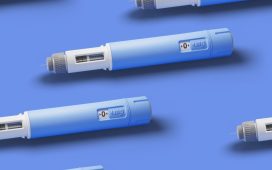Significant improvements seen in primary end points with T-TEER for patients with symptomatic, severe tricuspid regurgitation
By Elana Gotkine HealthDay Reporter
WEDNESDAY, Nov. 6, 2024 (HealthDay News) — For patients with symptomatic and severe tricuspid regurgitation (TR), tricuspid transcatheter edge-to-edge repair (T-TEER) yields significant improvements in primary end points, according to a study published online Oct. 27 in the Journal of the American College of Cardiology to coincide with the annual Transcatheter Cardiovascular Therapeutics conference, held from Oct. 27 to 30 in Washington, D.C.
Gilbert H.L. Tang, M.D., from the Mount Sinai Medical System in New York City, and colleagues examined outcomes from the randomized cohort of the TRILUMINATE Pivotal trial to assess the impact of TR reduction with T-TEER with the TriClip device. A total of 572 individuals with symptomatic, severe TR were randomly assigned (350 in the primary cohort; 222 in subsequent enrollment).
The researchers found that the primary end point (hierarchical composite of all-cause mortality or tricuspid valve surgery, heart failure hospitalizations [HFH], and quality-of-life improvement measured by the Kansas City Cardiomyopathy Questionnaire [KCCQ] at one year) was met for the full cohort, with a win ratio of 1.84. For the device and control groups, freedom from all-cause mortality and tricuspid valve surgery through 12 months was 90.6 and 89.9 percent, respectively. The annualized HFH rate was comparable between the groups (0.17 versus 0.20 events/patient-year for device versus control individuals). Overall, 49.5 percent of device individuals and 25.6 percent of control individuals achieved a ≥15-point KCCQ score improvement, indicating a significant treatment effect for quality of life. In addition, all secondary end points favored T-TEER.
“Changes in quality of life were associated with the degree of residual TR and the magnitude of TR reduction at one year,” the authors write.
The study was funded by Abbott Vascular, the manufacturer of the TriClip device.
Copyright © 2024 HealthDay. All rights reserved.








